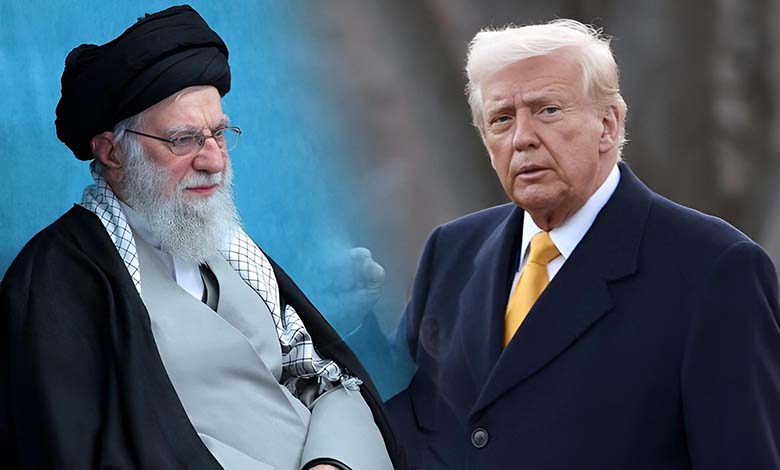Trump’s Pressure Pushes Iran to Accept U.S. Demands on Nuclear File

Shamkhani confirms that his country pledges never to build nuclear weapons, to dispose of its stock of highly enriched uranium, and to allow international inspectors to supervise the enrichment process in exchange for the immediate lifting of all sanctions.
Iran’s willingness to eliminate its stockpile of highly enriched uranium and its readiness to conclude a new nuclear agreement with the United States—as stated on Wednesday by Ali Shamkhani, advisor to Iran’s Supreme Leader Ali Khamenei—reflects the effectiveness of former U.S. President Donald Trump’s “maximum pressure” policy. Despite Tehran’s publicly hardline stance in recent years, it has shown a clear readiness to make tangible concessions once it felt increasingly isolated regionally and internationally and recognized the impact of the economic sanctions imposed on it.
-
Trump and Iran: 4 Possible Scenarios, Including “Shock and Awe”
-
Iran’s Nuclear Program Back in the Spotlight… and Trump Seeks Political Breakthrough
This policy, which tightened the economic and diplomatic noose around Iran, has forced the country into choices it would not have considered under different circumstances. It has strengthened the belief in some Western circles that continued pressure can indeed influence Tehran’s nuclear behavior.
It is now clear that Iran, which has long maintained a tough stance on its nuclear program, finds itself in a defensive position, compelled to comply with international demands—especially halting high-level uranium enrichment. This step not only reflects Iran’s desire to alleviate the economic burden caused by sanctions but also acknowledges its growing regional isolation and waning political influence, prompting it to seek a way out to avoid further collapse and isolation. Agreeing to negotiate under clear terms may be an attempt to break the imposed siege and restore some balance on the international stage.
-
Between Escalation and De-escalation: How Will Trump Handle Iran?
-
Trump’s Return Pushes European Powers to Demand Increased Pressure on Iran
The Trump administration adopted a “maximum pressure” policy against Iran, imposing new sanctions while simultaneously holding talks with Iranian officials aiming to lift those economically suffocating restrictions.
In an interview with NBC News, Ali Shamkhani stated that Iran commits to never developing nuclear weapons, eliminating its stock of highly enriched uranium, enriching uranium only to levels necessary for civilian use, and allowing international inspectors to oversee the process—all in exchange for the immediate lifting of all economic sanctions on the Islamic Republic.
Asked whether Iran was ready to sign an agreement today if its demands were met, Shamkhani replied: “Yes.”
-
Iran Keeps Door Open for Dialogue with Trump and Prepares for New Sanctions
-
Tehran and Washington Resume Nuclear Talks Under the Pressure of Red Lines
He further added, as quoted by the network, “It is still possible. If the Americans do what they say, we can certainly establish better relations,” which would “improve the situation in the near future.”
Iran’s stockpile of uranium enriched to 60% purity—close to the 90% required for bomb-making—has long been a concern for Western powers, who argue that there is no civilian justification for enrichment at such high levels. Iran insists its nuclear ambitions are solely peaceful.
On Wednesday, Trump called for strict enforcement of U.S. sanctions on Iran while expressing hope for a new nuclear deal
-
Trump Celebrates Major Economic Victories in First 100 Days
-
Israel Under Fire After Thwarted Cyberattack on Iran
His administration has held four rounds of negotiations with Tehran in pursuit of a new agreement, while also threatening military strikes if no resolution is reached.
In recent weeks, Washington has imposed sanctions on several individuals and entities linked to Iran’s oil sector and its missile and nuclear programs.
In 2018, during his first term, Trump withdrew the U.S. from the 2015 international nuclear deal with Tehran and reimposed sanctions on the Islamic Republic, including secondary sanctions targeting countries that purchase Iranian oil.
-
Nuclear Negotiations: U.S. Red Lines and Iran’s Firm Response
-
Iran May Accept a Deal Limiting Its Nuclear Program if Trump Doesn’t Withdraw Again












